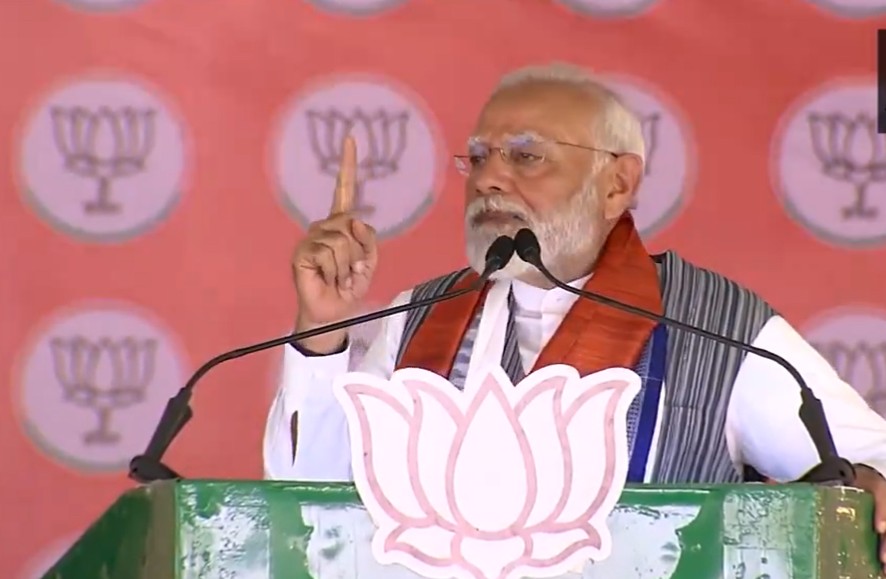Prime Minister Narendra Modi, while addressing a public rally in Munger, Bihar, presented a clear distinction between the governance models of the National Democratic Alliance (NDA) and the Indian National Democratic Alliance (INDI).
The NDA model, as described by PM Modi, is one of satisfaction. He highlighted the various facilities that the NDA government has provided, including toilets, gas, electricity connections, and water facilities for women. In addition, he mentioned the provision of free ration and medical treatment.
In contrast, PM Modi characterized the INDI Alliance model as one of appeasement. He criticized the INDI alliance for using all its resources for appeasement, without elaborating on what this appeasement involves.
PM Modi emphasized that the benefits provided by the NDA government were not based on religion or caste. “Anyone who has the right will get the benefits. This is true secularism and social justice,” he declared.
The Prime Minister also referred to a statement made by the ‘Shehzada’ of Congress. “He has said that a survey would be conducted for every family,” PM Modi said, leaving the audience intrigued about the nature and implications of such a survey.
As the political landscape heats up in the run-up to the elections, PM Modi’s speech in Munger has sparked a debate on the contrasting models of governance presented by the NDA and the INDI alliance. The public will be keenly observing how these models influence the political discourse in the coming months.



